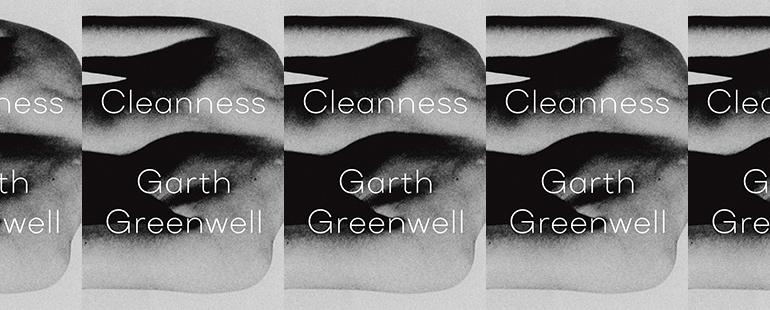Cleanness by Garth Greenwell

Cleanness
Garth Greenwell
Farrar, Straus & Giroux | January 14, 2020
What Belongs to You, Garth Greenwell’s first novel, was one of the most acclaimed releases of 2016, combining an icily postmodern sense of alienation and displacement with a heartbreaking analysis of a doomed love affair between the narrator, Greenwell’s stand-in, and a directionless Bulgarian youth. Greenwell’s newest work, Cleanness, returns to the same world, offering a deeper excavation of the sordid ballet of human desire and a fresh dose of his incisive investigations of social and sexual alienation. Set, like What Belongs to You, in contemporary Bulgaria, the novel likewise describes the life of a gay expat American teacher as he navigates the culture of illicit hook-ups and veiled desires in a foreign city.
An episodic narrative told in clean slices that resemble self-contained short stories, Cleanness has a familiarly autofictional capsule structure. In its first chapter, the narrator sits down for a conversation with one of his students in a crowded cafe, where the smoke-stained windows give off a light that is “strangely muted, as if steeped in tea.” When the student comes out to the narrator, Greenwell’s skills as a shrewd anatomist of the multi-paned psyche take center stage:
I felt two things as he spoke, first my usual dismay when talking to gay men here, who were more excluded than I had been, growing up in the American south, where at least I had found books that, even if they were always tragic, offered a certain beauty as compensation. But in addition to dismay I felt satisfaction or pride at having provided (as I thought of it) some degree of solace, and maybe this was the bigger part of what I felt.
Ultimately, the narrator is haunted by his inability to be a mentor in the hazy, perpetually half-lit world of illicit desire. The analytical distance that opens up in the prose is par for the course in Cleanness, as the narrator’s experiences are refracted again and again through the lenses of place and time.
The transmigration of narratives provides a touching moment of connection between teacher and student: “I recognized [his experience] exactly, and as he spoke I felt myself falling also, into his story and his feeling both.” This dance-step of recognition, a result of the porousness of narratives, helps to account for the book’s occasionally hoary tone. Greenwell is obsessed with the periodicity of personal desire—the way age brings with it a categorizing of passions, a sifting of old loves down into sedimentary layers of intensity. This in turn adds an air of antiquity to the self, extending back as it does discretely into the past; it’s why the book can feel at once so perilously modern and so coolly baroque, and why a Sebaldian melancholy seems at times to waft up like a fog through the spaces in Greenwell’s lovingly turned sentences.
A central drama in the book is the narrator’s sexual recidivism. Time and again he slinks back to the sordid, shame-soaked pleasures of meet-ups in public bathrooms and bouts of BDSM, encounters that leave him prone and objectified, in a desired state of will-lessness. Interestingly, these forays are figured at times as an expansion of the self, and at others as a dissolution of it: “I would strike ground only to feel it give way gaping beneath me, and I felt with a new fear…how there was no end to what I could want or to the punishment I would seek.” Later, after a bout of violent fellatio in which the narrator flings homophobic slurs at his partner, he finds himself crying and laughing, curiously cleansed—as though it were necessary to pass through the singularity of absolute shame to find, on the other side, the possibility of a new way of being.
Unsurprisingly, a sense of emptiness pervades the text. Sofia, where dilapidated Soviet-era architecture hangs like a depressive, Corbusian cloud above its inhabitants, is a stalled city, trapped in the post-historical doldrums of globalism—a pointed correlative of the narrator’s mental state as he drifts through a sea of desire, enervated by the realization that a cohesive sense of love might be beyond him. When the narrator’s partner, R., relates the story of his sexual assault by a family friend, the narrator realizes his words will never touch R.’s real fear, “that we can never be sure of what we want, I mean of the authenticity of it, of its purity in relation to ourselves.” The state of cleanness, of purity with regard to one’s desires, is a phantom thread Greenwell’s characters pursue tirelessly—as the book seems to admonish, there is a danger in equating cleanness with emptiness, with the safety and solitude of anhedonia.
It’s probably a mark of our eerily globalized, late-capitalist moment that a writer so profusely praised for his interest in the passions should write prose so surgical and clean—a curious, hypervigilant distance is always present in Greenwell’s writing, a product of the nascent fear of exploitation that pervades his writing and of his desire to schematize the passions. The relatively cool and collected narration of the book is essentially an attempt to view the flames of desire through a pane of tinted glass, in the hopes that they might reveal some rhythm or pattern untraceable in the heat of their immanence. Language becomes a mirror of “that strange state of vibrancy and stasis, like a flame submerged in glass” that, in Greenwell’s own words, attends the experience of forbidden desire.
Which isn’t to say the book isn’t frequently and unbearably lovely. In the book’s titular chapter, a fierce, anxiety-inducing wind blowing in from Africa suddenly forces open a window in the room where R. and the narrator are having sex. Reflecting on the wind, the narrator observes that perhaps it had no origin, that “maybe it was pure circulation, picking things up and setting them down again willy-nilly.” Though the image of circulation reflects both the whirling obscurity of the narrator’s desires and his tendency to move from partner to partner in a limitless, directionless glide, he manages to find in R. a point of firmness: “I wanted to root into him, even as the wind said all rootedness was a sham, there were only passing arrangements, makeshift shelters and poor harbors.” What makes Cleanness so astonishing to read is Greenwell’s ability to discover again and again, in the midst of the calamitous storm of love, these moments of paradoxical calm.



